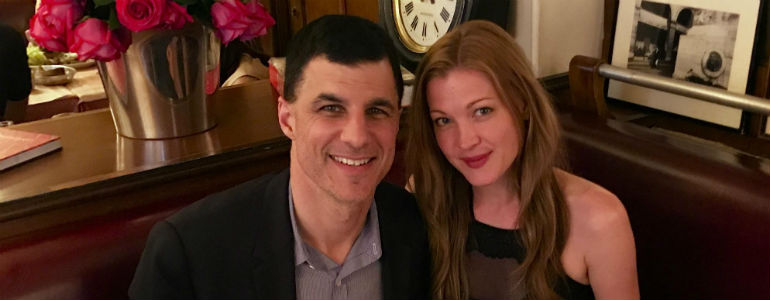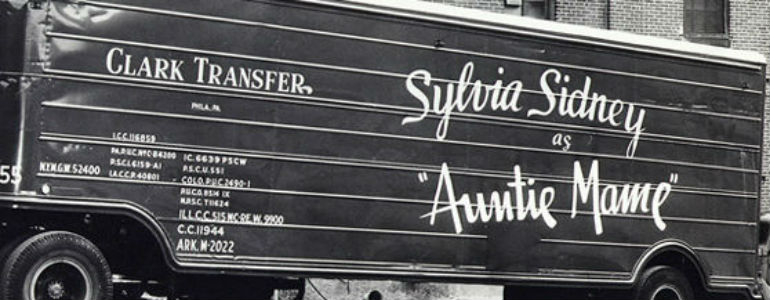Top Seven Things Different About Theater in Tokyo
 If you follow me on the Facebook or the Twitter, then you know I am currently halfway around the world checking out the Japanese production of Altar Boyz. I had never been to Tokyo before (and certainly never had an opportunity to eat Cod Sperm – which I politely declined), and I am having a blast.
If you follow me on the Facebook or the Twitter, then you know I am currently halfway around the world checking out the Japanese production of Altar Boyz. I had never been to Tokyo before (and certainly never had an opportunity to eat Cod Sperm – which I politely declined), and I am having a blast.
The similarities between Tokyo and NYC are pretty incredible, from the subway system to the traffic (pedestrian and auto) to the incredible food (I mean, in its defense, I didn’t even try the Cod You-Know-What).
Whenever I travel, I’m always hyper curious about the similarities and differences between theater in foreign lands (which includes some parts of the US) and theater in NYC.
Here are seven things I noticed about theater and business in Tokyo that I found fascinating:
1. They found a way to get young people to the theater!
The primary audience for theater in Japan is females . . . ok, no difference there . . . but ready? Females in their 20s and 30s! Doh! It’s the thing to do on the weekends here, especially with your gal pals. Because when I say females, I mean females. The performance of ABz I saw had, oh maybe 5 guys in the entire audience of 400+ . . . and my translator and I were two of them!
2. They put their opening night gifts on display.
At every opening night on Broadway, backstage is crowded with flowers and gift baskets and incredible gestures of love and support from the families of the cast and crew. In Japan, they solved the crowding issue by putting the flowers on display in the lobby for everyone to see! (See photo – and this is only some of the gifts!) It’s quite neat, and adds an extra special feeling of excitement (and a nice aroma) to the lobby pre-show. Our lobbies on Broadway are probably too crowded to do this . . . but maybe yours isn’t?
3. They run sprints, not marathons.
Unless you’re a megamusical, like Lion King, etc., the runs for shows are short, but they can often find a way to bring them back. This is the third run of Altar Boyz in Japan, over a couple year period, and it only lasts for two weeks. Obviously the economics are a little different so it allows them this kind of flexibility, but I thought about regional theaters a lot when thinking about this model. Shorter runs, brought back year after year. Create a guaranteed foundation for your next season but making your hit show more scarce.
4. Who says it is hard to get sponsors?
In Japan, as in most other countries except ours, lots of corporate sponsorship (as well as some governmental assistance) help make these musicals possible. Wait a minute, let me amend that . . . I should say that corporate sponsorship is hard to find in the commercial world. It’s all over the non-profit balance sheets (e.g. American Airlines Theatre and so on). So, I guess the reason it’s more evident in other nations, is because there is no real difference between “non-profit” and “profit” theater. It’s just theater. Ok, I’m not as jealous as I was five seconds ago. Not as jealous.
5. Actors are the same wherever you go.
It’s just the coolest thing. No matter what country I go to or what language I speak, every actor I meet is the same. They have such passion for what they do, such natural performance energy . . . and they even all carry these huge bags around with them everywhere they go. Seriously, when I met one of the “Lukes” (there are three casts of the show that perform in rep to their own set of fans), he apologized for having a huge bag with him. “I just came from the gym, and I have my songbook and my dance shoes . . .” I laughed. It could have been anyone on the street in NYC. But beyond bags, they all love what they do soooo much, you can’t help but smile. I even got a little song one night over some chicken gizzards (very yummy). And when I asked him what his dream role was, expecting to hear about some authentic Japanese drama that I couldn’t pronounce, he answered . . . “Roger from Rent.”
6. Theater tickets are expensive here too.
Top price for a ticket to Altar Boyz? 7,800 yen or over $100. Expensive, right? Now remember that their audiences are in their 20s-30s . . . and are paying it. And I didn’t see a giant TKTS booth in the middle of Shinjuku station either. They are doing something right.
7. Why have 1 when you can have 2.
Double and even triple casting is a marketing strategy in Japan. They had three “teams” of Altar Boyz that rotated performances. I thought maybe this strategy was just for ABz until I saw this photo:
I mean, if one Annie is cute, why not two! but one of my Japanese Producer friends confirmed that they often cast two or three actors to rotate the leads, and it’s not because their actors don’t have the stamina, it’s because every actor has their own set of fans. Imagine doing Sweeney Todd with Patti LuPone playing half the perfs, and Betty Buckley the other half. Come on, you’d go both times, right?
Theater is different in Tokyo. No doubt about it. But at its core, it’s the same . . . a group of passionate people getting on a stage in a dark room and sharing their hearts and souls for as many people that will come.
And everyone I spoke to there wouldn’t give it up for any profession in the world, no matter how much money another life paid them.
And I wouldn’t give it up either. Even if it meant I had to eat Le Sperm de Cod.
(Stay tuned . . . next week, I’m off to Paris to see My First Time! I’ll see how the French do it! And yes, that’s what she said.)
(Got a comment? I love ’em, so comment below! Email subscribers, click here, then scroll down, to say what’s on your mind!)
——
FUN STUFF:
– Win tickets to see Stick Fly on Broadway. Enter here!
– Take a Broadway Road Trip! From Mass on 2/4 and From DC on 2/25! Click here!
– SEMINAR ALERT: Get Your Show Off the Ground Seminar: 2/18. Sign up today!
Podcasting
Ken created one of the first Broadway podcasts, recording over 250 episodes over 7 years. It features interviews with A-listers in the theater about how they “made it”, including 2 Pulitzer Prize Winners, 7 Academy Award Winners and 76 Tony Award winners. Notable guests include Pasek & Paul, Kenny Leon, Lynn Ahrens and more.















